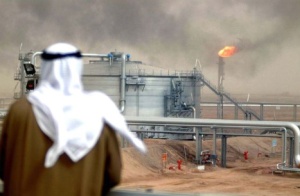 Oil prices are beginning to climb back towards the historical highs they’d reached before the economic collapse of 2008. They’re not yet in nose-bleed territory, but there are indications that prices are likely to keep rising.
Oil prices are beginning to climb back towards the historical highs they’d reached before the economic collapse of 2008. They’re not yet in nose-bleed territory, but there are indications that prices are likely to keep rising.
According to an article in The Guardian, cables from the U.S. consul general released by Wikileaks reveal that the Saudis have overstated their oil reserves by as much as 40% in order to stimulate foreign investment.
U.S. diplomats were apparently told by Sadad al-Husseini, former head of oil exploration at the Saudi oil corporation Aramco, that the country would not be able to boost its production to the level necessary in order to keep global oil prices down as the world emerges from the financial crisis of the last several years.
Of course, peak oil theorists (myself included) have been all over this argument for years. But there’s been little recognition of the urgency of the peak oil scenario in official circles. In fact, the economic downturn has all but silenced discussion of renewable energy since economic recession has provoked lower commodity prices. Yet the leaked cables suggest that U.S. diplomats are taking al-Husseini very seriously rather than viewing him as an apocalyptic ranter: “While al-Husseini fundamentally contradicts the Aramco company line, he is no doomsday theorist. His pedigree, experience and outlook demand that his predictions be thoughtfully considered.”
This is the first time fears about peak oil have been aired by a highly placed U.S. official, even if they were not intended for public consumption.
So, are we ready to start talking seriously about a massive, coordinated, just transition to sustainable energy production now? Probably not. I suspect that we’ll have to go over the precipice of cripplingly high prices for petroleum before enough political willpower will be mustered to broach these issues seriously in U.S. political discourse. We’re cursed with living in increasingly wild times.